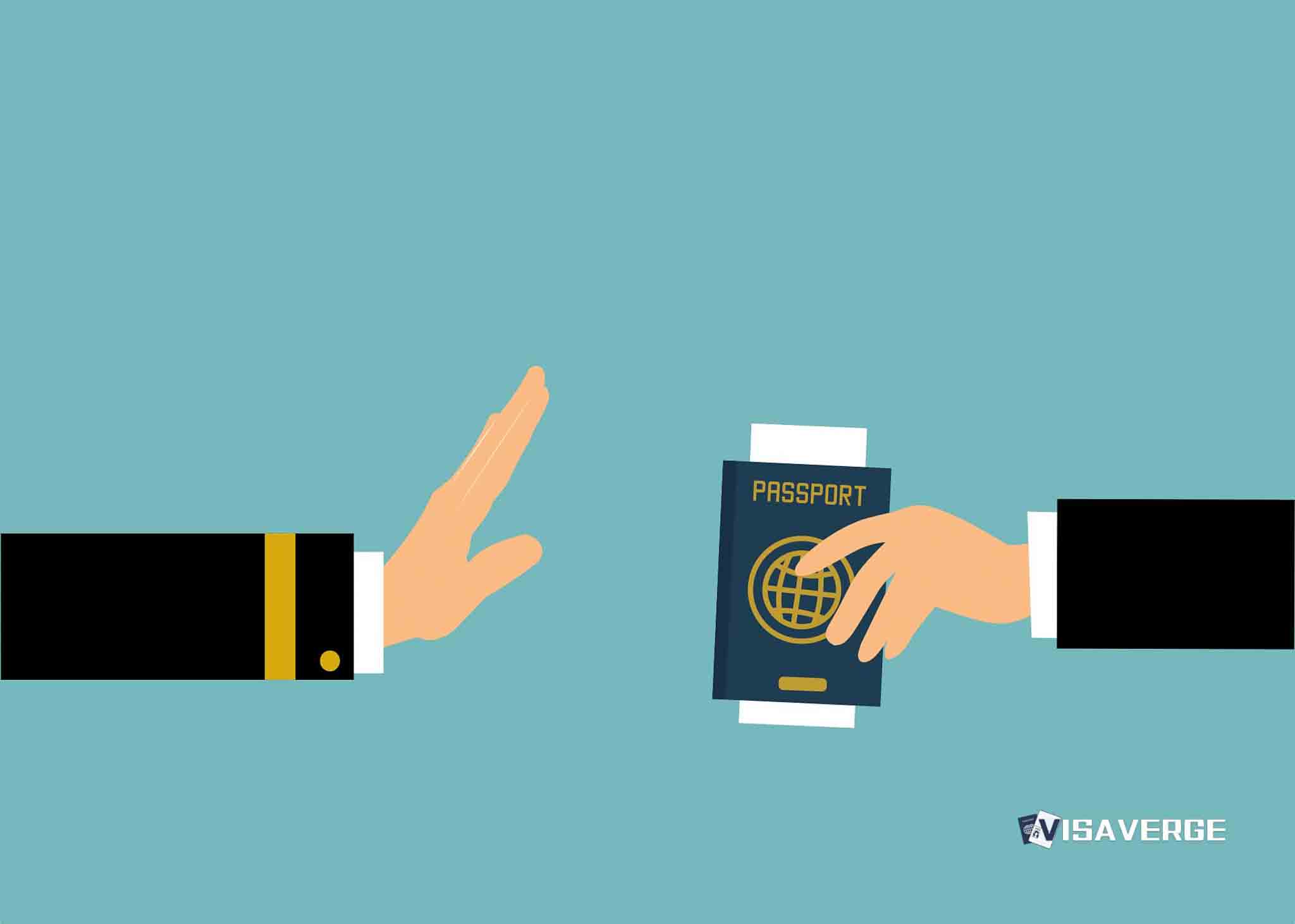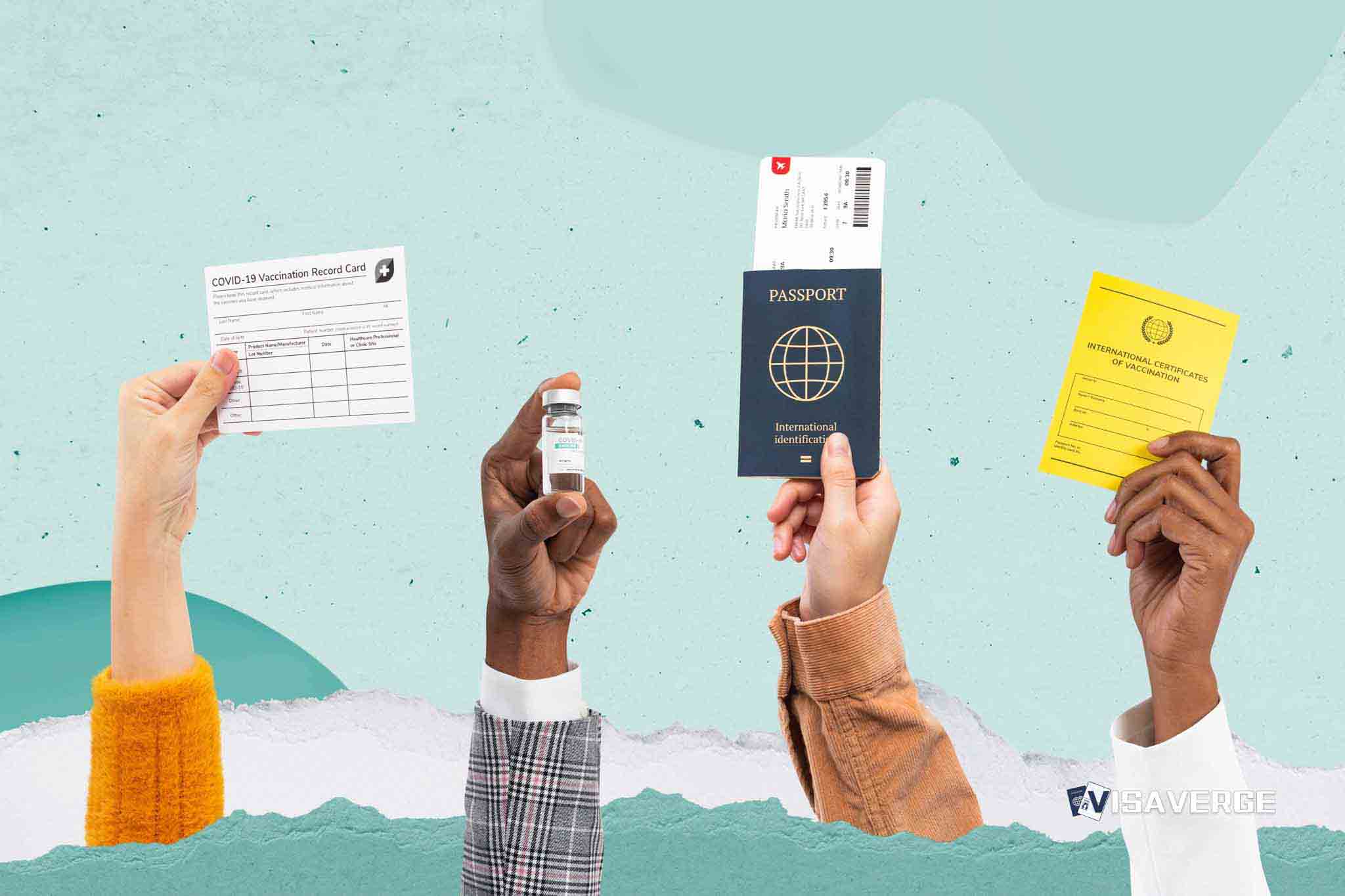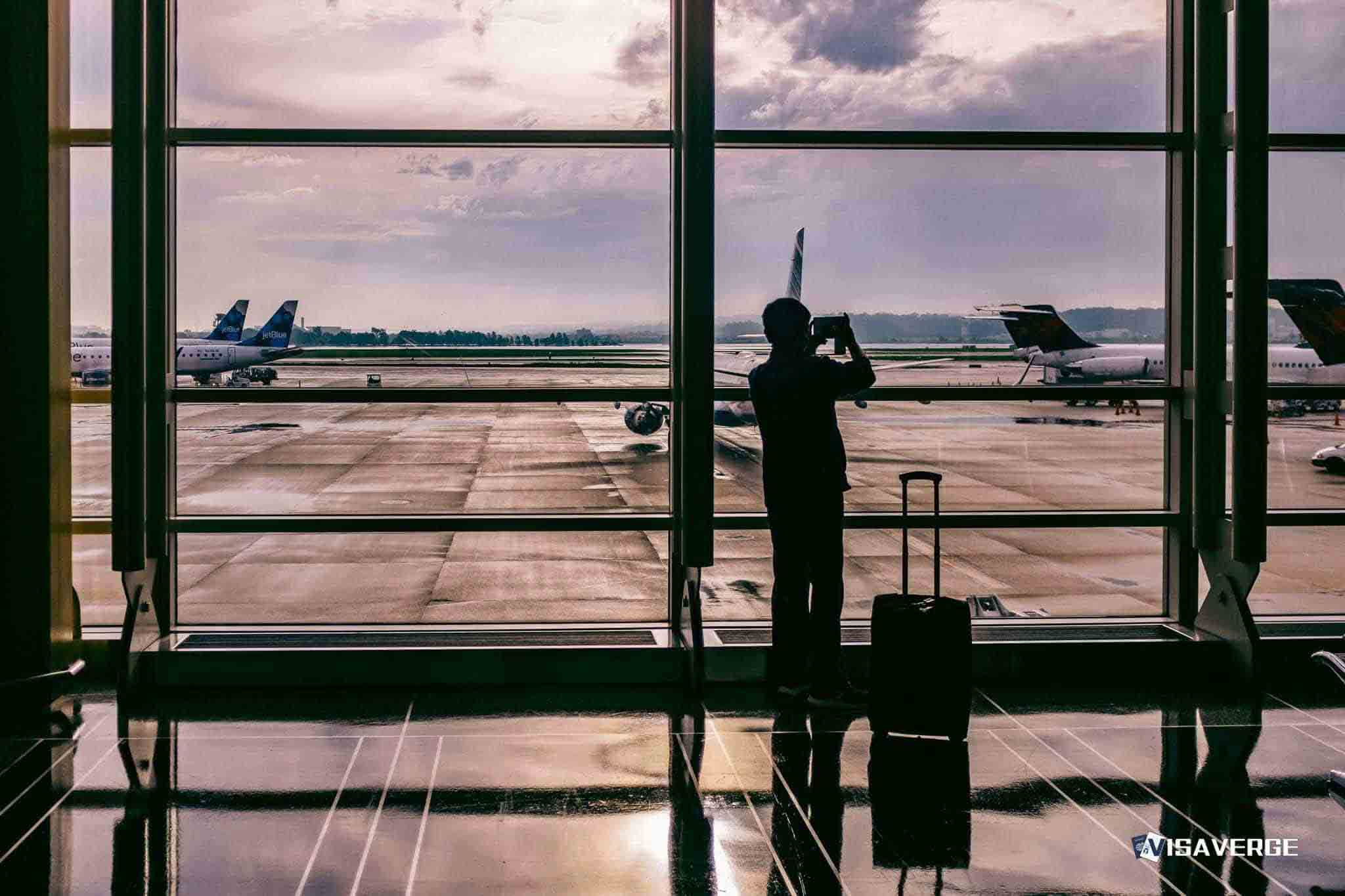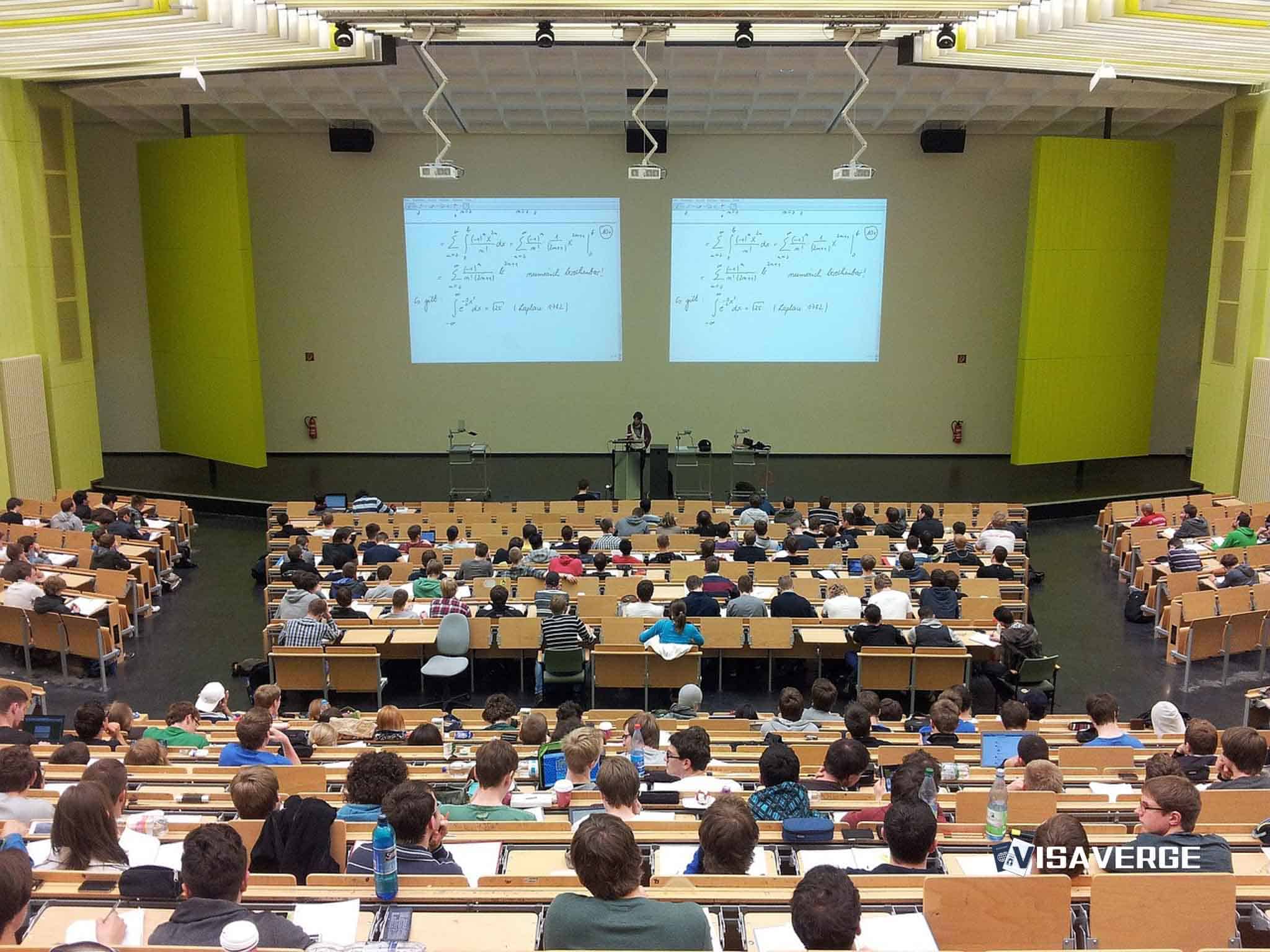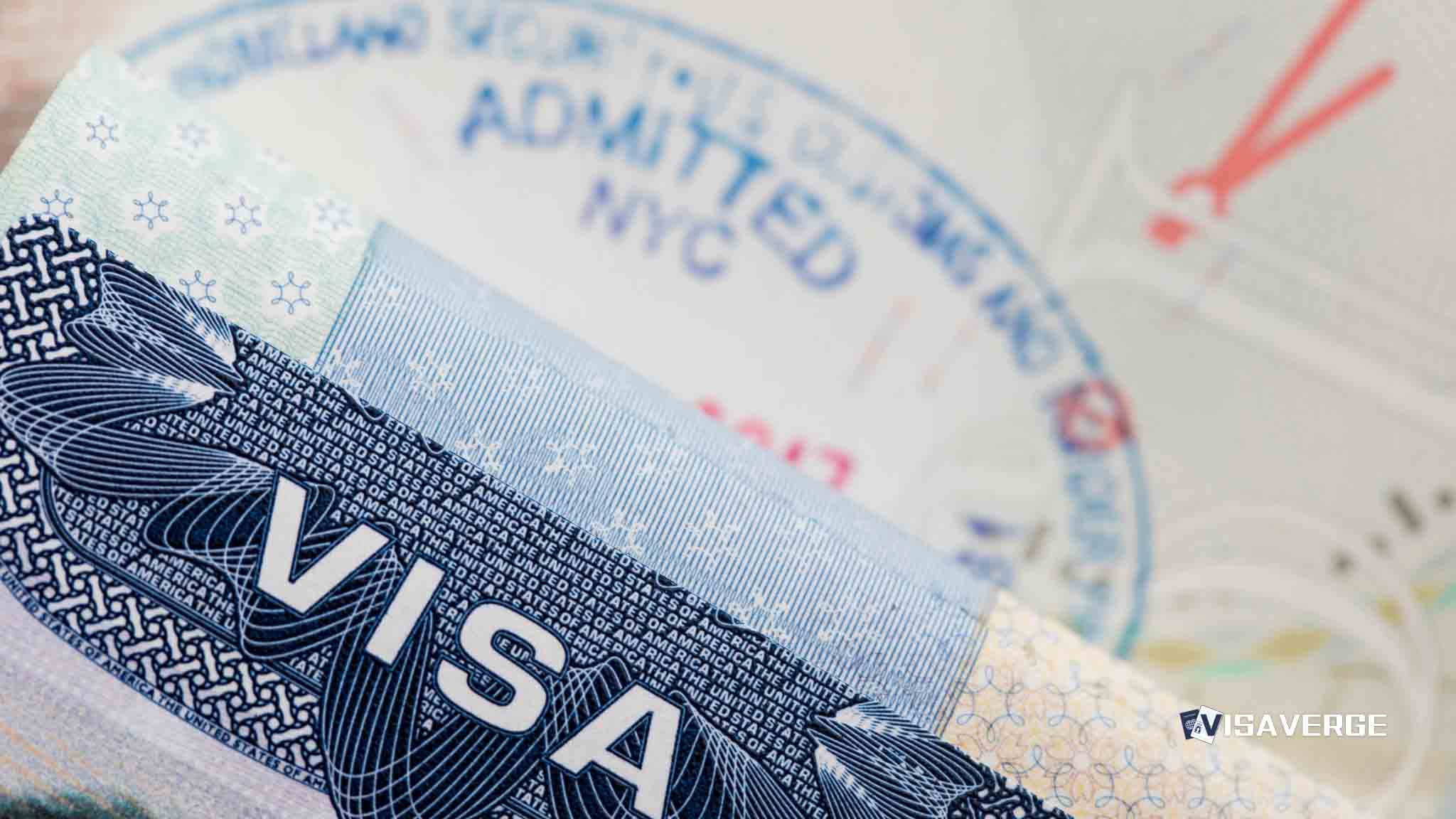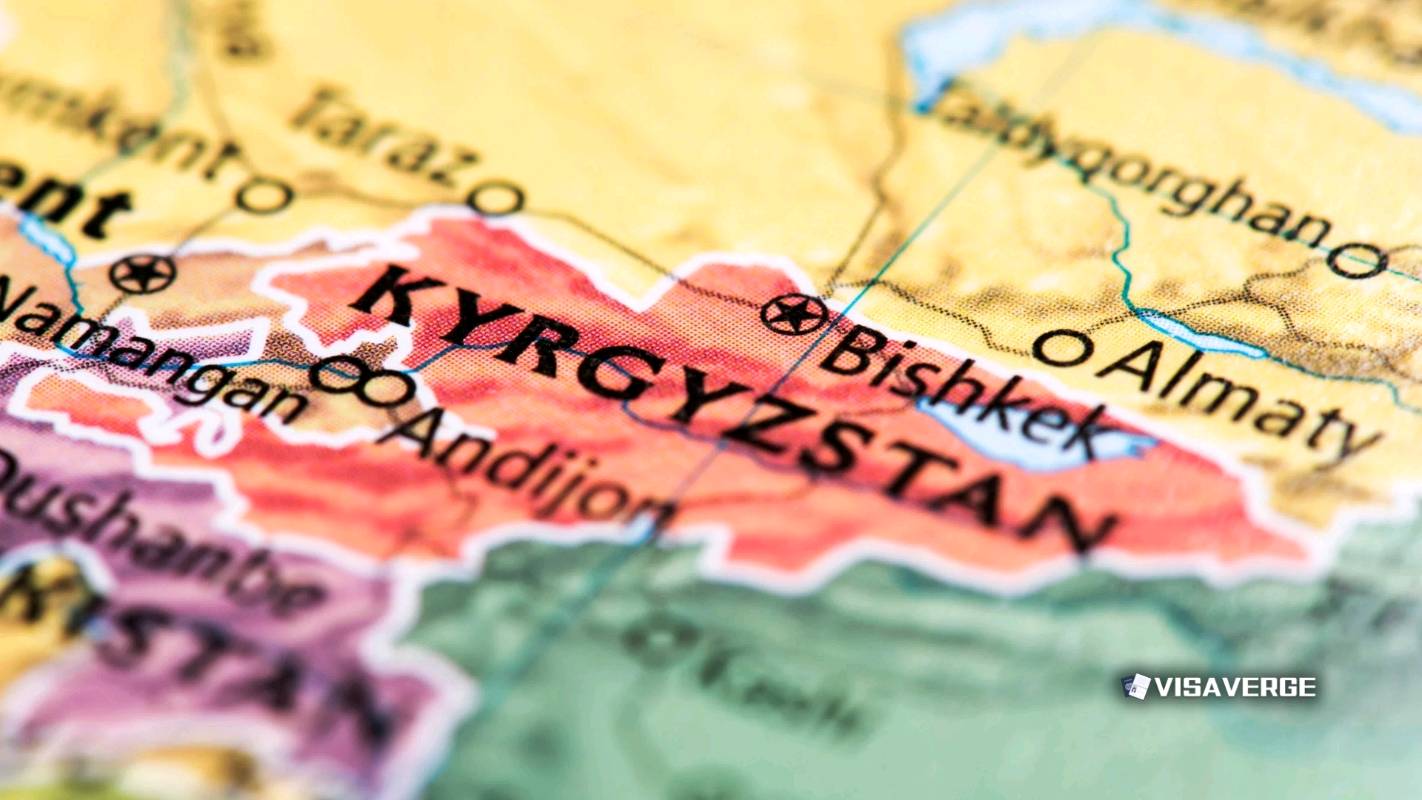Key Takeaways
• Visa interview waits for soccer fans may exceed 300 days, requiring application up to a year in advance.
• B-2 tourist visa is required for most non-VWP countries; no special visas or priority for World Cup fans.
• Fans should buy official World Cup tickets only after visa approval to avoid financial risk and denied entry.
Soccer fans around the world are buzzing with excitement as preparations ramp up for the 2026 FIFA World Cup. For the first time, the event will be hosted across three North American countries: United States 🇺🇸, Canada 🇨🇦, and Mexico 🇲🇽. More than six million international visitors are expected to flood into the United States 🇺🇸 alone—a record number for soccer, and the largest in the history of the World Cup. But for many soccer fans, the joy of booking match tickets is met with real worry over the U.S. visa process, especially as official ticket sales draw closer.
Long Waits and Strict Rules Dampen Soccer Hopes
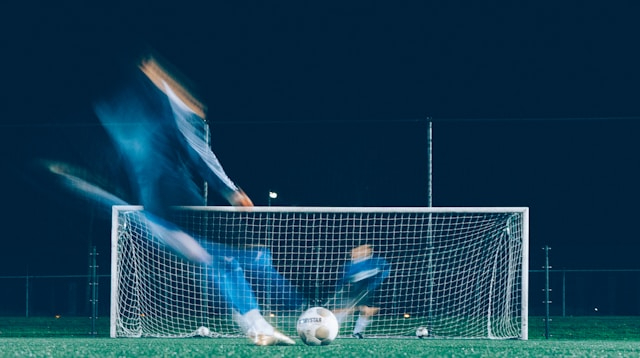
For international soccer fans, the path to seeing World Cup matches live in the United States 🇺🇸 is more than just purchasing tickets. Many will face tough U.S. visa requirements, and for several countries, the hurdles are especially high. One of the biggest challenges? Long waits for visa interviews.
Current reports show that soccer fans from outside Europe, especially from Africa, Asia, and South America, are dealing with very long waits at U.S. embassies and consulates. Some people face delays of over 300 days just to get a visa interview. This means applications must start much earlier—sometimes more than a year in advance. The U.S. government has already stated it will not prioritize soccer fans for faster visa processing, even though so many are trying to attend the World Cup.
If you are dreaming of cheering from the stands in the United States 🇺🇸, it’s best to apply for your U.S. visa as soon as you can. Waiting too long could easily mean missing your chance.
Who Needs a U.S. Visa for the World Cup?
Not every soccer fan coming to the World Cup matches in the United States 🇺🇸 needs a traditional visa. Here’s a quick breakdown:
- Citizens of the United States 🇺🇸, Canada 🇨🇦, and Mexico 🇲🇽 do not need a U.S. tourist visa.
- Citizens of over 40 countries—mostly in Europe and regions like Australia and Japan—can travel to the United States 🇺🇸 using the Visa Waiver Program (VWP). These visitors must get an “ESTA” authorization, which lets them stay in the country for up to 90 days without applying for a regular visa.
- Soccer fans from large soccer-loving nations like Brazil 🇧🇷 or India 🇮🇳 are not part of the VWP. They need a B-2 tourist visa, which is the main type of visa for this kind of short visit.
If you’re unsure whether your country is part of the Visa Waiver Program, you can check the official list of eligible countries on the U.S. Department of State’s website. This will help you understand right away if you need to worry about the full visa process.
The B-2 Tourist Visa—What You Need to Know
The B-2 tourist visa is the standard visa for travelers hoping to visit the United States 🇺🇸 for tourism or to attend sports events like the World Cup. Let’s break down the basics of how to get one:
Steps to Apply
- Fill Out the Application Form: Soccer fans must complete the Form DS-160, which is the online application for a U.S. visa. This form asks for personal information, details about your trip, and some security questions.
- Pay the Fee: The visa application usually costs $160, but prices can change. Make sure you keep your payment receipt.
- Schedule an Interview: If you are between ages 14–79, you need to schedule an in-person interview at the nearest U.S. embassy or consulate. Be prepared for a long wait—sometimes more than 300 days depending on your location.
- Prepare Documents: Gather proof of your finances (bank statements, work letters), your travel plan (hotel bookings, event tickets), and a passport that’s valid for at least six months beyond your intended stay.
- Complete the Interview: At your interview, you may need to show you have plans to return home after the World Cup and that your visit is temporary. You should also bring all required documents and be ready to answer questions clearly and truthfully.
Why the B-2 Visa Process Can Be Tough
Even with soccer’s wide appeal, U.S. visa rules remain strict. During the interview, you will need to prove you have strong ties to your country—like a good job, family, or property—that will convince the officer you won’t overstay your visit. If you can’t do this well, your visa can be denied.
Consular officers don’t give extra help just because you’re attending the World Cup. They judge your application the same way as others, which is why detailed paperwork and honest answers are so important.
Ticket Sales and the Visa Race
One of the hardest parts for soccer fans planning their trip is the timing. FIFA has announced that official ticket sales won’t begin until the summer of 2025. Yet, tickets are already appearing on unofficial websites, sometimes at sky-high prices.
Fans worry about spending a lot of money on World Cup tickets before knowing if they’ll even get their U.S. visa approved. There’s no guarantee that buying your ticket now means you’ll get to use it. FIFA has told fans not to buy from any site except official channels and not to make ticket plans until their travel paperwork is in order.
The risk is big: buying expensive tickets from unofficial sellers can lead to loss of money, scams, and heartbreak if you can’t clear U.S. immigration screening.
Why Early Planning Is a Must
With U.S. visa wait times rising and no fast-track options for soccer fans, early preparation is the best advice. The U.S. State Department recommends applying for a visa at least 6–12 months ahead of travel. Don’t wait until after you’ve bought tickets, as you may be left out last-minute.
What Soccer Fans Should Do:
- Apply for your U.S. visa as soon as possible, especially if you’re from a country that needs a B-2 tourist visa.
- Check your passport’s expiry date. It should be valid at least six months beyond your planned return.
- Keep all your papers in order—bank statements, planning documents, tickets, and any other proof that helps show your plans are genuine and temporary.
- ONLY buy World Cup tickets from official outlets—and only after your visa is approved.
These careful steps can keep your World Cup dreams alive while avoiding risks with both tickets and travel.
Stakeholder Worries: Event Experience and National Image
It’s not just individual fans who stand to lose. Sports Business Journal, citing L.A. Times coverage, reports that many stakeholders—event planners, travel agencies, and even U.S. policymakers—are worried about how strict rules and long visa waits could hurt the World Cup.
They fear that “red tape” could cause big problems for millions of fans, leading to empty seats, loss of revenue, and negative global news for the United States 🇺🇸 during a historic sporting event. It could dull the excitement, undermine the event’s image, and make travelers less likely to visit again in the future.
If too many soccer fans are kept out by visa delays, the World Cup could lose some of its unique energy, and the host country’s reputation as a welcoming place might be challenged.
Common Questions About World Cup Visas
Will there be a special visa for World Cup fans?
So far, the U.S. government has not made a special visa for visitors who want to attend World Cup matches. All foreign tourists—including soccer fans—must use the same B-2 visa or come in through the Visa Waiver Program if eligible, following normal rules and screening steps.
Can I get priority or urgent visa processing as a fan?
No. The U.S. government has said directly there will be no priority for soccer fans. VisaVerge.com’s investigation reveals that people wanting to visit for the World Cup should not expect faster processing, no matter their nationality or ticket status.
What happens if my visa is refused after I buy tickets?
If your visa is denied, you will not be allowed to enter the United States 🇺🇸, even if you hold valid World Cup tickets. This is why experts and tournament leaders stress buying tickets only after your travel approval is complete. Unofficial resellers may not refund your money if you have to cancel your trip.
How can I check my eligibility and follow visa requirements?
All official details are regularly updated on the U.S. State Department’s website. This site lists step-by-step instructions, required forms, and recent wait times for your local embassy or consulate. By staying informed, soccer fans can avoid costly mistakes and stay on track with their plans.
Table: Key Facts for World Cup Travelers
| Issue | Details |
|---|---|
| Who needs visas? | Non-U.S./Canadian/Mexican citizens; VWP applies if eligible |
| Main tourist visa type | B-2 Visitor Visa |
| Application timeline | Apply 6–12 months in advance |
| Processing difficulties | High demand, long waits, no priority for fans |
| Ticket purchase risks | Unofficial sites sell tickets early; no guaranteed entry without a visa |
Special Notes for Soccer Fans From Brazil 🇧🇷, India 🇮🇳, and Others
Many of the world’s biggest football-loving countries—including Brazil 🇧🇷, India 🇮🇳, and most countries in Africa—are not covered by the Visa Waiver Program. Fans from these regions should pay extra attention to applying well ahead of schedule and preparing for interviews.
Having all your documents ready—work letters, family information, bank details, and proof of your local ties—can help you succeed during the interview and reduce your stress. Experts also recommend saving all official receipts in case you need to prove your payment or status later.
Long-Term Impact of Visa Challenges
While soccer fans focus on the immediate 2026 event, the bigger picture is important. The World Cup could show the United States 🇺🇸 as either friendly and open, or as a country weighed down by tough rules and red tape. If thousands of fans face barriers or face disappointment, it might discourage tourism for years to come.
For businesses, airlines, hotels, and local organizers, every lost visitor is lost income and missed opportunity. By handling visa processing carefully, the United States 🇺🇸 can help create a safer, happier experience for everyone.
Steps to Secure Your World Cup Dream
To help you get ready for the World Cup, here’s a quick checklist for soccer fans needing a U.S. visa:
- Check your passport validity—make sure it’s valid at least six months after you plan to leave the country.
- Confirm your need for a visa or ESTA—see if you qualify for the Visa Waiver Program.
- Start your B-2 tourist visa application early—aim for at least 6–12 months before your planned trip.
- Gather all required documents before your visa interview.
- Wait to buy World Cup tickets until after you’ve got your visa or ESTA approval.
- Keep up-to-date by checking the official U.S. travel site for any updates.
Following this checklist will give you the best shot at joining millions of soccer fans for the thrill of the World Cup in the United States 🇺🇸.
Final Thoughts
The 2026 FIFA World Cup promises to be a festival like no other, bringing together soccer fans from every corner of the globe. But the joy of the game depends on careful planning and patience, especially with the strict U.S. visa process and unpredictable wait times.
By keeping informed, applying early, and sticking to official ticket channels, fans will give themselves the best chance to enjoy world-class soccer live and in person. VisaVerge.com will continue to monitor updates around visa rules, wait times, and event policies, so fans can safely plan their once-in-a-lifetime trip.
If you’re one of the millions hoping to catch the action live, start today. The World Cup is just around the corner, and a little preparation will help make your soccer dreams a reality.
Learn Today
Visa Waiver Program (VWP) → Allows citizens of over 40 countries to travel to the United States for tourism without a traditional visa for up to 90 days.
B-2 Tourist Visa → A U.S. visa type required by most visitors for tourism or attending events, including the World Cup. Requires an interview.
ESTA → An online authorization system for eligible VWP travelers, granting up to 90 days stay in the United States.
Consular Officers → U.S. embassy or consulate officials who review visa applications and conduct interviews to decide on visa approvals.
Proof of Ties → Documents and evidence demonstrating a visitor’s intention to return home, such as job, family, or property in their home country.
This Article in a Nutshell
The 2026 FIFA World Cup will draw record crowds, but U.S. visa delays threaten fans’ dreams. With interview waits topping 300 days, early B-2 visa applications are crucial. Don’t risk buying tickets before approval—official channels only. Careful planning lets soccer fans overcome red tape and enjoy this global sporting event.
— By VisaVerge.com
Read more:
• UK to tighten study visas over rising asylum claims
• UK targets visa abuse as Pakistani nationals lead in asylum claims
• UK Home Office plans stricter visa overstaying rules for Nigeria and others
• Afghans now face $15,000 bond for US visitor visa applications
• Congress considers raising student visa fees to support education funding






